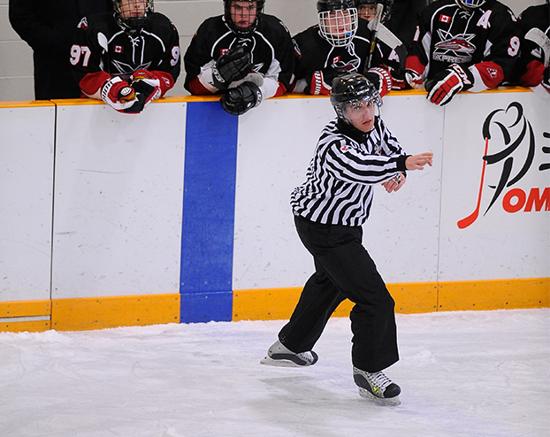Back in the day (yes, it was a while back and yes, I have first-hand experience with it), field hockey umpires put a stop to any dialogue between them and coaches and players–sometimes with cards. In modern times that attitude has relaxed but we probably don't encourage as much discussion as ice hockey referees do, who officiate a sport with a significantly more aggressive and less respectful culture than field hockey. Is that the better approach, or does a more open communication flow encourage too much arguing? Let us know your thoughts in the comments.
4. Communication:
Personally I rank this high on the list of importance. I have learned over the seasons that the more the players, and coaches hear officials talking in ‘good’ times, when there are penalties or bench management issues there tends to be an increased willingness to respect and hear each other. The best way to establish your standards and game management style is through communication. Respectful, calm voice, positive body language, calm but firm facial expressions, crisp whistles, and clear hand signals are all ways to ensure positive game management clearly communicated to players and coaches.
Source: Five Tips for First Year Refs


Spanish please
Enviar info en idioma español por favor